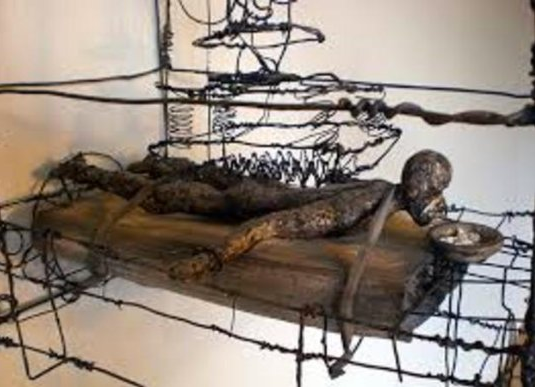In his opinion piece, “The World According to Maxwell Smart, Part 1,” Thomas L. Friedman, who is someone I enjoy reading, because I learn, though I don’t necessarily agree with him all the time, says the following:
You can’t understand the spread of ISIS or the Arab Spring without the relentless advance in computing and telecom — Moore’s Law — creating so many cheap command-and-control Internet tools that superempower small groups to recruit adherents, challenge existing states and erase borders. In a flat world, people can see faster than ever how far behind they are and organize faster than ever to protest. When technology penetrates more quickly than wealth and opportunity, watch out.
The combined pressures of the market, Mother Nature and Moore’s Law are creating the geopolitical equivalent of climate change, argues Michael Mandelbaum, author of “The Road to Global Prosperity,” and “some familiar species of government can’t survive the stress.”
In other words, as I, myself, argued recently in “How Fútbol (not soccer) Explains the World – If Not How it Explains Immigración En EEUU (USA),” we are losing borders – they’re murky at best – and money is not restricted by man-made demarcations, just the opposite is true:
Immigrants and multinational corporations follow the flow of money; it provides hope and potential – a future. The flow of capital knows no boundaries – everyone, especially people suffering in different parts of the world, know this. We, “the EEUU,” (after all North, South and Central Americans are ALL AMERICANS), have a hand in creating possibilities, as well as destruction…
The point is this: when it suits us, we’ll cross any border; we’ll invade; we’ll destroy. Immigrants, witnessing this way of being, follow suit – then we prosecute them.
Friedman is interested in showing how complex – and interconnected – our world order (and chaos) really are; that blaming Obama, though there’s plenty to criticize here, fails to see the challenges we face; and, that there are “huge forces acting in these countries, and it will take extraordinary collaboration by the whole world of order to contain them,” the promised subject of Friedman’s Wednesday’s column.
In order to emphasize this point – again and again and again – I’ll use two authors I frequently turn to on this subject (sorry, again and again for repeating the always already obvious – that which we turn away from): Edward W. Said and Homi K. Bhabha, two professors experts on this subject.
Here’s Bhabha, from his now essential The Location of Culture, which I’ve used before in these pages, but needs repeating:
Our existence today is marked by a tenebrous sense of survival, living on the borderlines of the ‘present’, for which there seems to be no proper name other than the current and controversial shiftiness of the prefix ‘post’: postmodernism, postcolonialism, postfeminism
…Beginnings and endings may be the sustaining myths of the middle years; but … we find ourselves in the moment of transit where space and time cross to produce complex figures of differences and identity, past and present, inside and outside, inclusion and exclusion.
Friedman’s “figures of difference” are the likes of Boko Haram and ISIS, for instance. Friedman adds:
NATO decapitates Libya’s regime and sets loose a tribal-militia war of all against all, which, when combined with the crackup of Chad, spills arms and refugees across African borders, threatening Tunisia and Morocco. Israel has been flooded with more than 50,000 Eritreans and Sudanese refugees, who crossed the Sinai Desert by foot, bus or car looking for work and security in Israel’s “island of order.”
And, just since October, the U.S. has been flooded with more than 50,000 unaccompanied children from Guatemala, El Salvador and Honduras.”
In other words, the compression and extensions of globalization are producing frightening figures, great violence and a dispersal of people. The world is, indeed, borderless; these are simply man-made construction that are continuously being pushed aside. This, in turn, is producing a world in which many have to live in dehumanizing exile.
Said is best here:
Exile is strangely compelling to think about but terrible to experience. It is the unhealable rift forced between a human being and a native place, between the self and its true home: its essential sadness can never be surmounted. And while it is true that literature and history contain heroic, romantic, glorious, even triumphant episodes in an exile’s life, these are no more than efforts meant to overcome the crippling sorrow of estrangement. The achievements of exile are permanently undermined by the loss of something left behind forever.
Said’s first line says it all, defining the world Bhabha so eloquently describes as “tenebrous” because, in fact, it is “on the borderlines.” Exile, then, is a terrible experience that permanently houses an individual in the “unhealable” space of in-between, between “a human being and a native place, between self and its true home.”
The exiles we create – and we do have a hand in creating exiles, all of us do; responsibility for our world is all of ours – are forever lodged in a suffering place all because we cannot seem to understand that incredible false sense of borders and demarcations we’ve given the Other – those we don’t want to acknowledge, those that are different, and always will be, those that ask us to reconsider our privileged vistas, our biases and prejudices.



